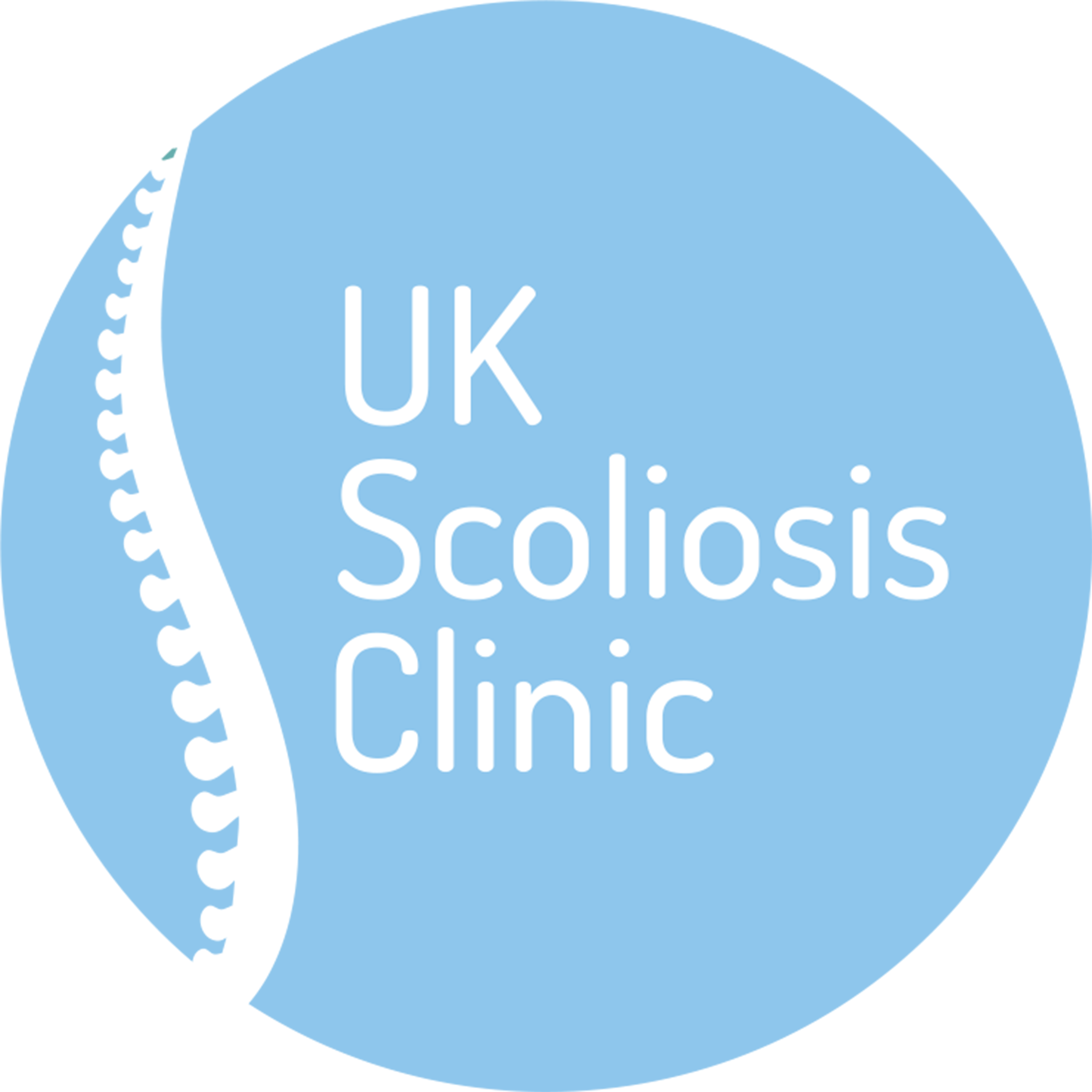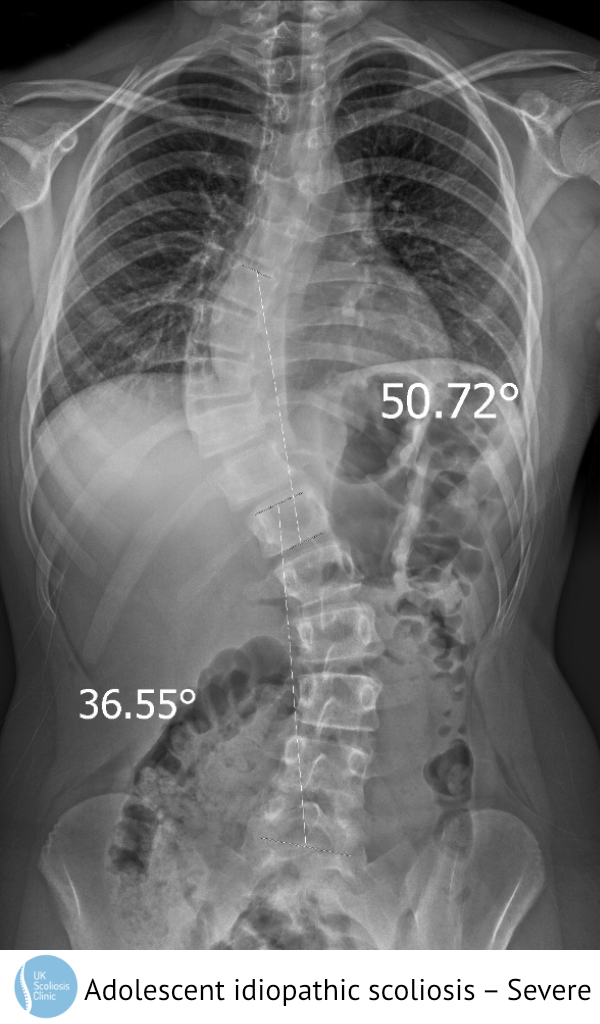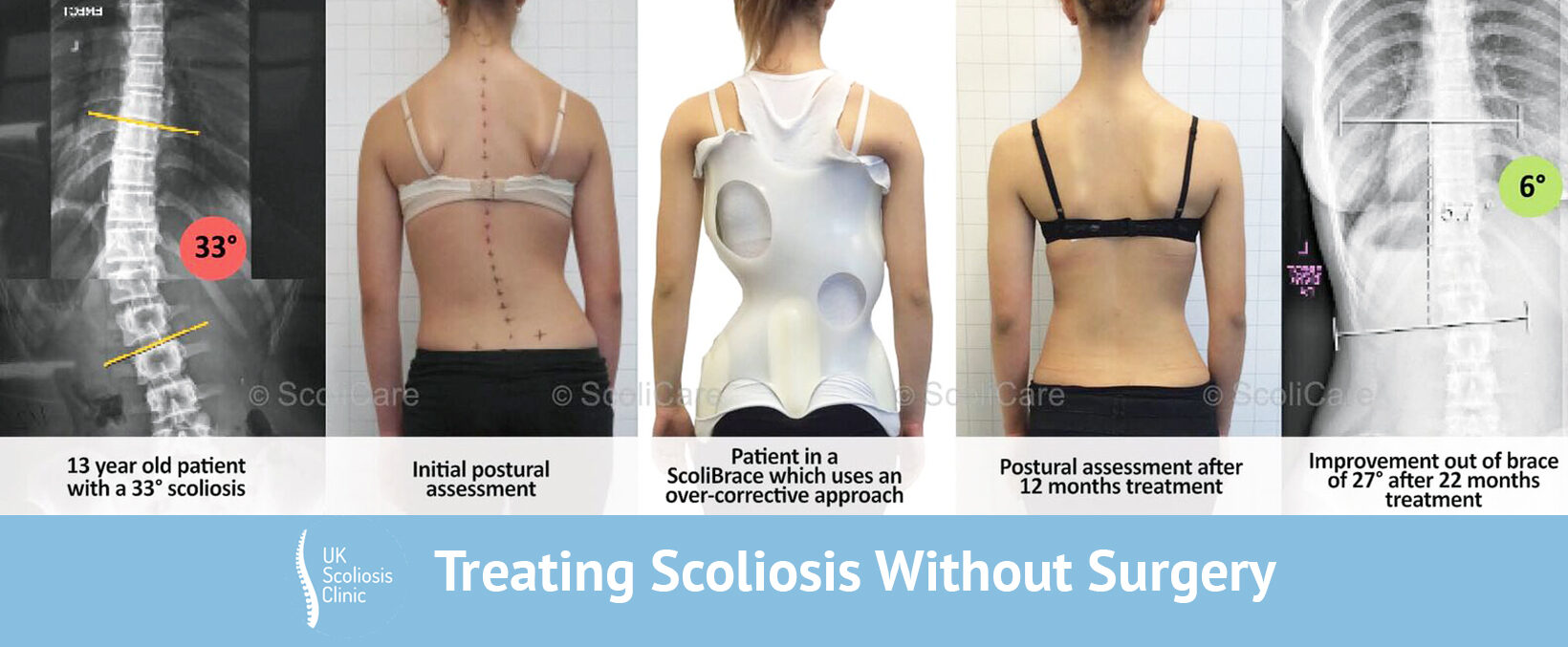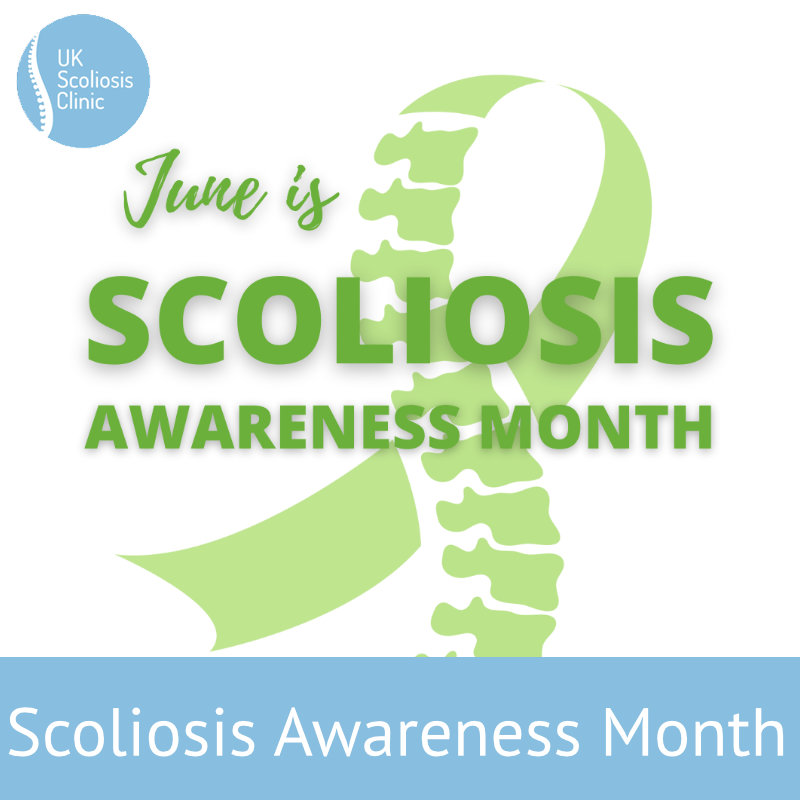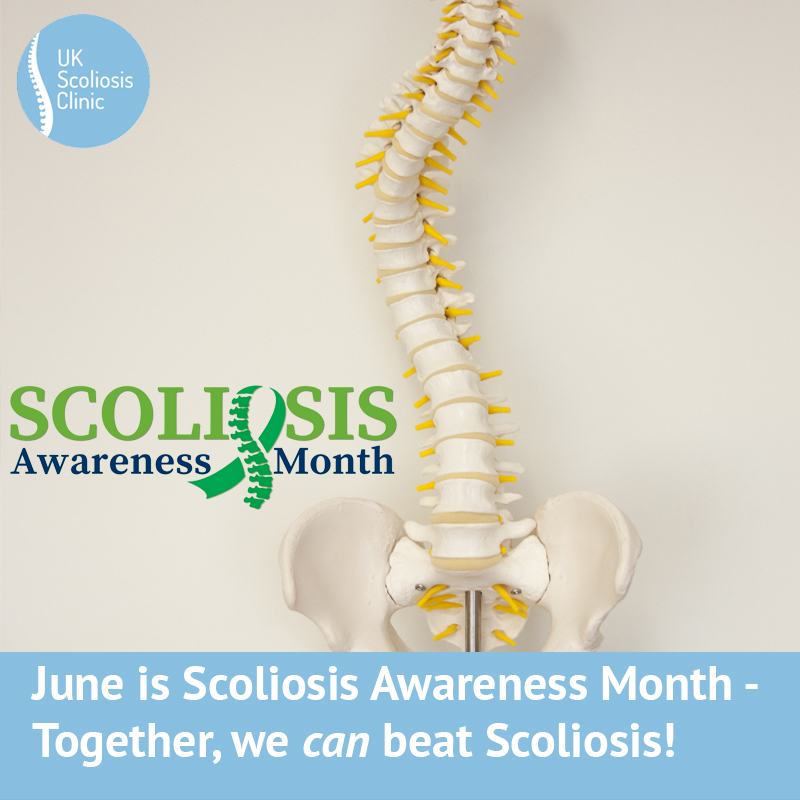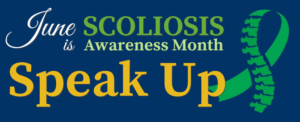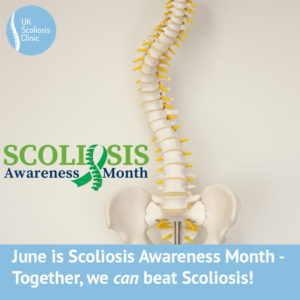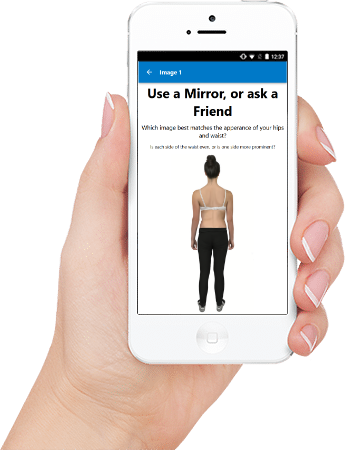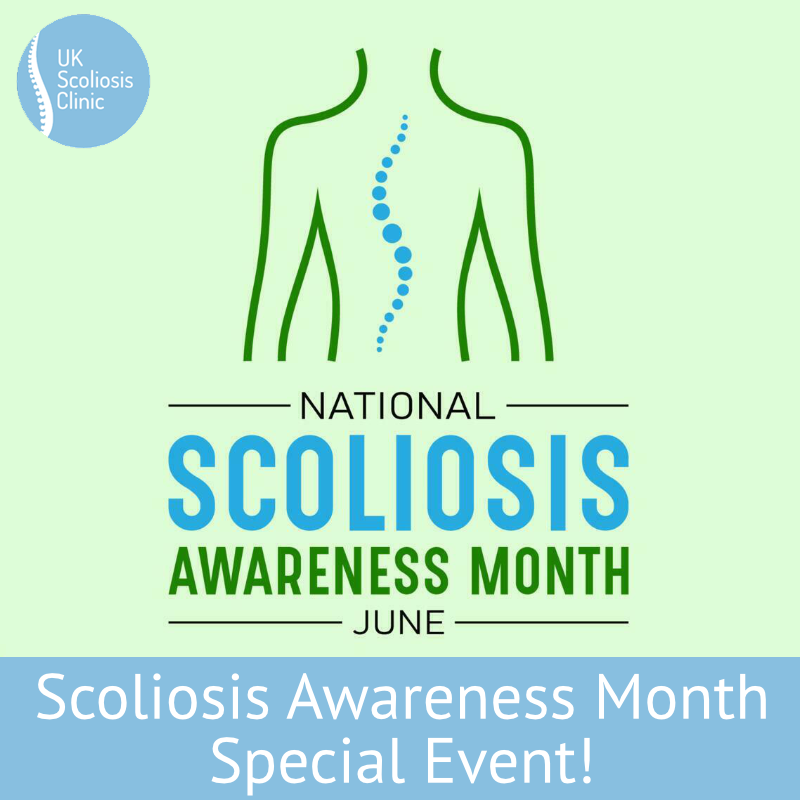
At the UK Scoliosis Clinic, we are proud to mark June as Scoliosis Awareness Month. This period serves as an anual chance for us to reflect on the advancements in scoliosis treatment and to advocate for ongoing research. As the Scoliosis Research Society suggests, it is crucial to “Speak Up For Scoliosis” during this month, raising awareness about the condition.
Understanding Scoliosis
Scoliosis is a condition where the spine curves abnormally to the side. Despite its prevalence, scoliosis is not widely known, affecting people across all ages, races, and genders, including infants, adolescents, and adults. Adolescents (predominantly females) and individuals over the age of 60 are most frequently diagnosed and should be especially observant.
According to the Scoliosis Research Society, approximately one in six children diagnosed with scoliosis will have a curve severe enough to require active treatment, which may include surgery. Early detection is crucial for initiating treatment that can prevent more severe complications. Today, a variety of non-surgical options, such as bracing and exercise-based therapies, are available, making early diagnosis even more important for successful outcomes.
What is Scoliosis Awareness Month?
National Scoliosis Awareness Month in June focuses on the urgent need for education, early detection, and increased awareness about scoliosis and its impact. This initiative brings together patients, families, healthcare professionals, institutions, and related businesses for a month of collaborative grassroots efforts.
Globally, scoliosis screening practices vary. In the UK, there are currently no standardized screening programs, while in the US, about two-thirds of states have mandates or recommendations for scoliosis screening in schools. This underscores the importance of educating friends and family about recognizing the signs and symptoms of scoliosis. Often, it is parents or primary care providers who first notice the issue. Fortunately, a simple examination or X-ray can easily confirm a diagnosis, making the condition much easier to treat.
Screening in Schools is Essential!
The numbers dont lie. About 2 – 3% of all adolescents will develop Scoliosis. (that’s approximately one in each class at school), with the majority of cases initially appearing in those between 11 and 14 years of age. Research indicates that seven out of ten children with this condition will worsen and require active treatment – this is especially the case for those who develop Scoliosis as a Juvenile, in which case curves almost never resolve without treatment.
Until recently, it was thought that surgery was the only way to correct Scoliosis – however, over the last decade or so, there has been huge progress in Scoliosis treatment, so that today we can successfully treat most cases which are detected early without surgery. Early detection is key however, as we mentioned, in the UK, there’s currently no program to screen children for Scoliosis. This, in our view, is major problem since screening takes less than 2 minutes once you know how.
Today there is significant evidence which shows that the number of scoliosis sufferers eventually requiring surgery can be substantially reduced where non-surgical treatment (such as scoliosis-specific exercise, or bracing) is available. The earlier treatment is started, the better the outcome. Research also confirms that in areas where screening programs exist, fewer patients ultimately require surgery for scoliosis.
Our Mission for 2024
With this in mind, rhis year, our focus is on reaching as many Schools as possible!
Can you help?! Check out more information here: https://scoliosisclinic.co.uk/schools/ and watch this page for updates!

